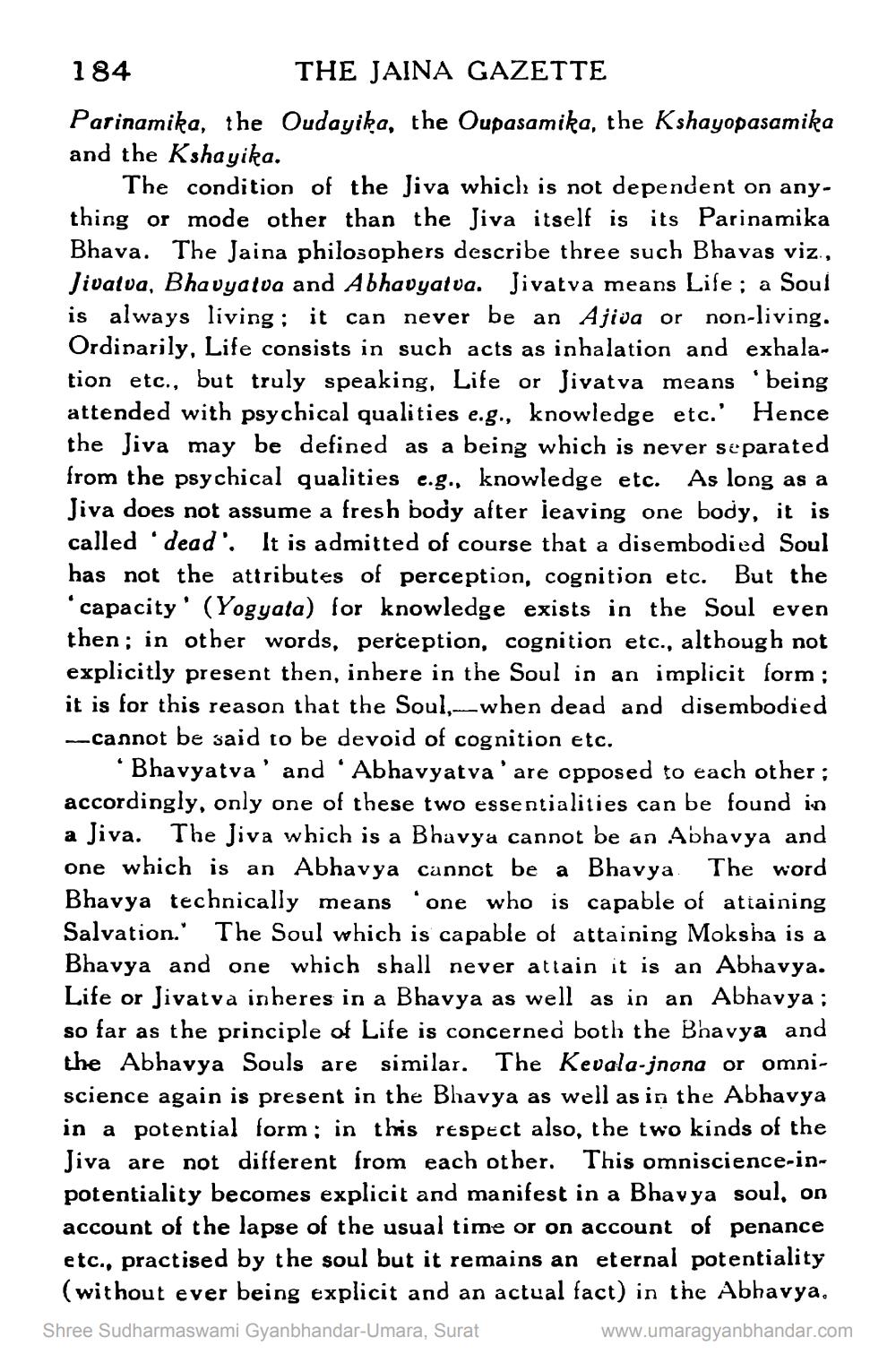________________
184
THE JAINA GAZETTE Parinamika, the Oudayika, the Oupasamika, the Kshayopasamika and the Kshayika.
The condition of the Jiva which is not dependent on anything or mode other than the Jiva itself is its Parinamika Bhava. The Jaina philosophers describe three such Bhavas viz., Jivatua, Bhavyatua and Abhavyatva. Jivatva means Lise; a Soul is always living; it can never be an Ajiva or non-living. Ordinarily, Life consists in such acts as inhalation and exhalation etc., but truly speaking, Life or Jivatva means 'being attended with psychical qualities e.g., knowledge etc.' Hence the Jiva may be defined as a being which is never separated from the psychical qualities e.g., knowledge etc. As long as a Jiva does not assume a fresh body after leaving one body, it is called 'dead'. It is admitted of course that a disembodied Soul has not the attributes of perception, cognition etc. But the 'capacity' (Yogyala) for knowledge exists in the Soul even then; in other words, perception, cognition etc., although not explicitly present then, inhere in the Soul in an implicit form ; it is for this reason that the Soul..when dead and disembodied --cannot be said to be devoid of cognition etc.
'Bhavyatva' and 'Abhavyatva are opposed to each other ; accordingly, only one of these two essentialities can be found in a Jiva. The Jiva which is a Bhavya cannot be an Abhavya and one which is an Abhavya cannot be a Bhavya. The word Bhavya technically means 'one who is capable of attaining Salvation.' The Soul which is capable of attaining Moksha is a Bhavya and one which shall never attain it is an Abhavya. Life or Jivatva inheres in a Bhavya as well as in an Abhavya ; so far as the principle of Life is concerned both the Bhavya and the Abhavya Souls are similar. The Kevala-jnona or omniscience again is present in the Bhavya as well as in the Abhavya in a potential form; in this respect also, the two kinds of the Jiva are not different from each other. This omniscience-inpotentiality becomes explicit and manifest in a Bhavya soul, on account of the lapse of the usual time or on account of penance etc., practised by the soul but it remains an eternal potentiality (without ever being explicit and an actual fact) in the Abhavya. Shree Sudharmaswami Gyanbhandar-Umara, Surat
www.umaragyanbhandar.com




